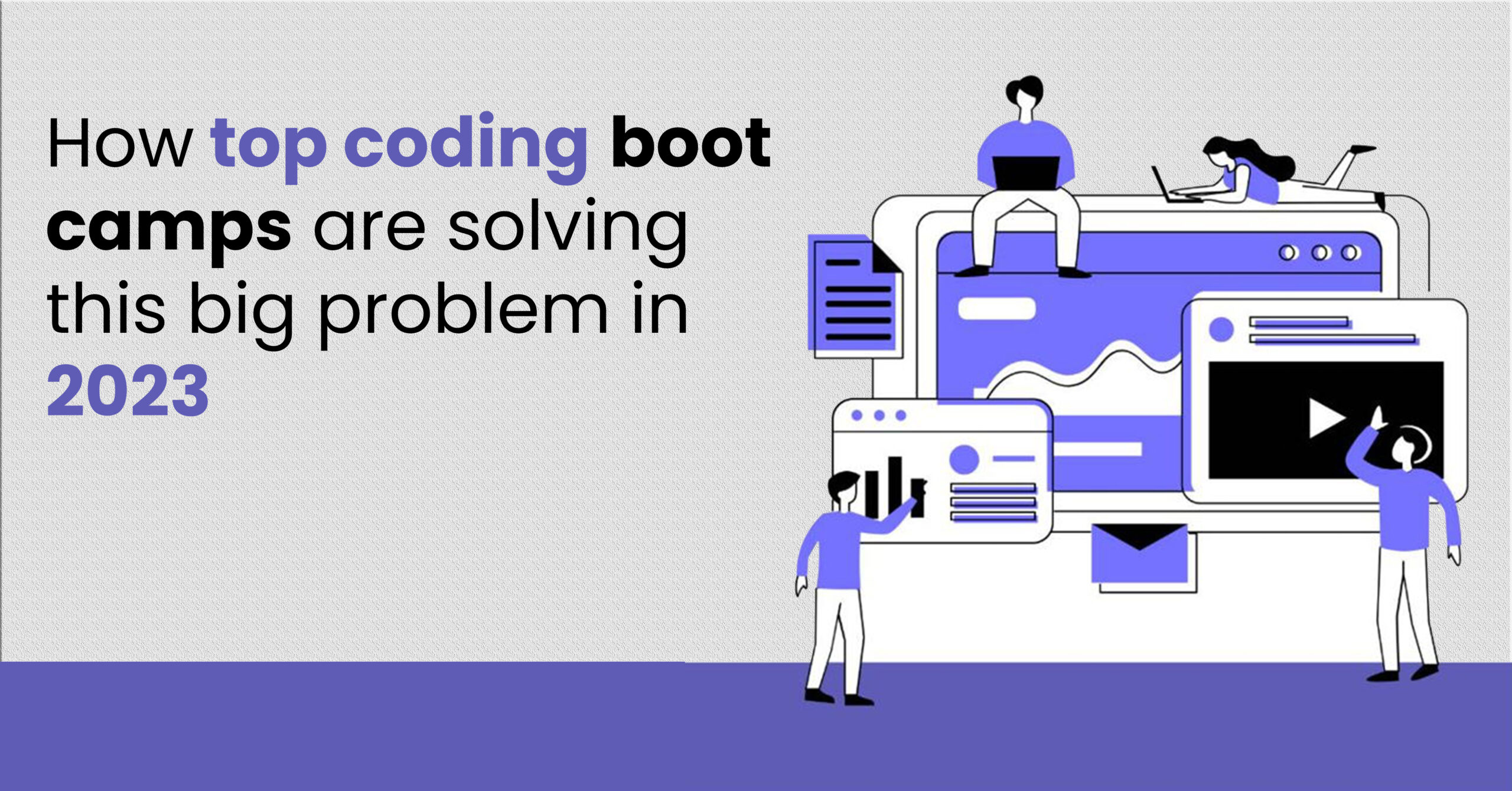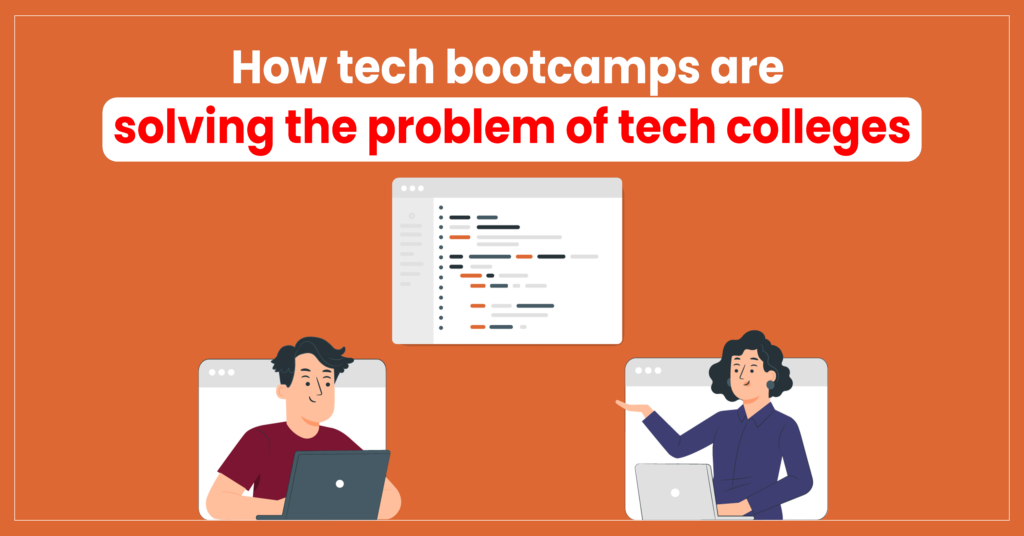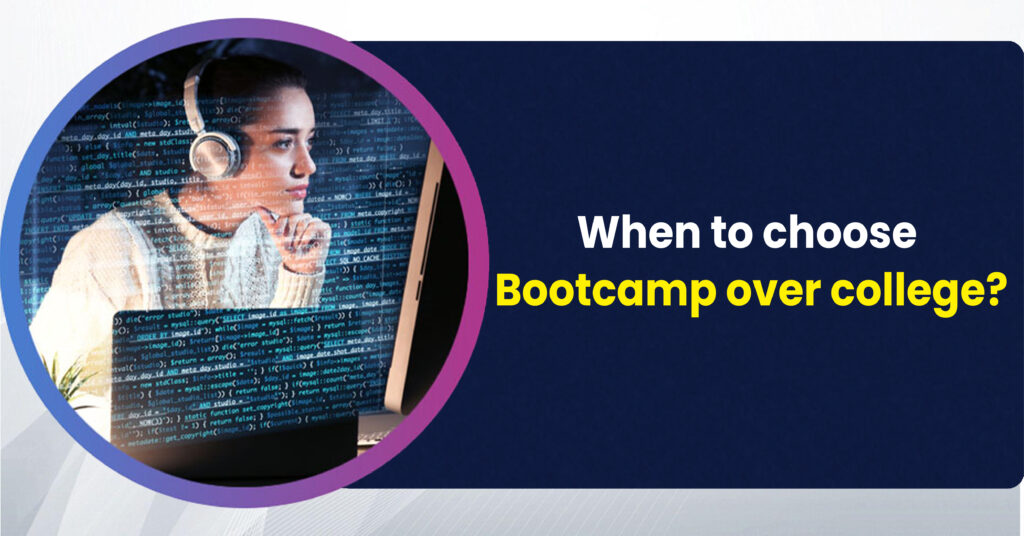
As one of the Top Coding Bootcamps in 2023 and one of the most recognized Coding Bootcamps in NJ & NYC, we will shed light on how the massive shortage of tech talent still persists in the US and how Bootcamps are helping to fulfill that shortage.
The shortage of coding talent in the US is a growing concern for many industries as the demand for skilled developers continues to outstrip the supply. This shortage is affecting businesses of all sizes, from small startups to large corporations, and is causing delays in the development of new products and services.
One of the main reasons for the shortage of coding talent is the rapid pace of technological change. As new technologies and platforms continue to emerge, businesses are finding it increasingly difficult to find developers with the necessary skills to build and maintain their products. This is particularly true for cutting-edge technologies like artificial intelligence, machine learning, and blockchain, which require specialized knowledge and experience.
Another contributing factor is the lack of computer science education in the US. Despite the growing demand for coding talent, many schools and universities do not offer computer science programs or fail to provide students with the necessary skills to succeed in the industry. This has resulted in a shortage of qualified candidates for open positions, making it difficult for businesses to find the talent they need.
The need for more coding talent is also impacting the diversity of the tech industry. As a result of the lack of computer science education, many underrepresented groups, such as women and minorities, are not entering the field, leading to a homogenous workforce. This not only limits the pool of potential candidates but also has long-term consequences on the industry as a whole.
In addition to these factors, the competitive nature of the tech industry also exacerbates the shortage of coding talent. Many of the most skilled developers are snapped up by large tech companies, leaving smaller businesses struggling to find qualified candidates. This has led to a bidding war for top talent, with businesses offering ever-increasing salaries and benefits to attract and retain developers.
The shortage of coding talent is a serious issue that is impacting the growth and innovation of many industries in the US. Businesses, educators, and policymakers need to work together to address the problem by increasing computer science education, promoting diversity and inclusion, and making it easier for businesses to find and hire qualified candidates.
The rising acceptance of boot camps in the corporate world

The acceptance of boot camps in the corporate tech scene of the US has been on the rise in recent years. A Bootcamp is a type of intensive training program that focuses on teaching the technical skills required to be a software developer or other tech professional in a short period, usually a few months. These programs have become increasingly popular as a way for individuals to quickly and effectively enter the tech industry.
Bootcamps have been able to fill the gap in the market for tech talent by providing a more flexible and accessible alternative to traditional computer science education. Unlike traditional four-year college programs, boot camps are often shorter, less expensive, and more focused on the skills that are currently in demand in the tech industry. This makes them an attractive option for individuals who want to switch careers or gain new skills but may not have the time or resources to pursue a traditional college degree.
As the acceptance of boot camps has grown, so too has the number of programs available. Today, there are hundreds of boot camps operating in the US, offering a wide range of courses and specializations to meet the needs of different students. These programs also range in price, making them accessible to a wider range of people.
The corporate world has also started to recognize the value of Bootcamp graduates. Many tech companies have begun to actively recruit Bootcamp graduates, recognizing that they have the skills and knowledge needed to succeed in the tech industry. This has led to a growing number of Bootcamp graduates finding employment at top tech companies, such as Google, Facebook, and Amazon.
Bootcamps have also helped to increase diversity in the tech industry. These programs have provided a pathway for underrepresented groups, such as women and minorities, to enter the field, which has helped to create a more inclusive and representative tech workforce.
Additionally, boot camps are also seen as a way for companies to retrain their existing employees to adapt to the fast-paced technological changes. This has also helped companies to keep their employees engaged and motivated in their current roles, which has led to a decrease in employee turnover rate.
In conclusion, the rising acceptance of boot camps in the corporate tech scene of the US has been a positive development for both the tech industry and individuals looking to enter the field. These programs have provided a more flexible and accessible pathway to a career in tech and have helped to increase diversity in the industry. As the demand for tech talent continues to grow, boot camps are likely to play an even more important role in meeting the needs of the industry.
What are colleges not able to do?

Colleges and universities are facing challenges in training tech talent as the industry is evolving rapidly. These challenges include an outdated curriculum, a lack of practical experience, and a shortage of faculty with industry experience.
One of the main challenges is that the curriculum of many computer science programs is not keeping up with the rapid pace of technological change. For example, many programs still focus on teaching languages and technologies that are no longer in high demand while neglecting newer and emerging technologies such as machine learning and artificial intelligence. This means that students are graduating with a skill set that may not be relevant in the current job market.
Another challenge is that many computer science programs lack a strong emphasis on practical experience. While students may learn the theory of programming and software development, they may not have enough hands-on experience to be able to apply that knowledge in a real-world setting. This can make it difficult for them to adapt to the fast-paced nature of the tech industry and to be productive in their roles once they enter the workforce.
The shortage of faculty with industry experience is also a challenge for colleges and universities. Many professors in computer science programs have little or no experience working in the tech industry. This can make it difficult for them to provide students with the practical knowledge and skills needed to succeed in the field. Furthermore, these professors may not have the knowledge about the latest technologies and trends which are currently in demand in the market.
Another issue is that many colleges are not able to provide the resources and facilities that students need to learn the latest technologies. This includes access to the latest hardware and software, as well as the opportunity to work on real-world projects. Many students are not able to gain the experience they need to be competitive in the tech industry.
In addition, many colleges and universities are not able to provide the career services that students need to find jobs in the tech industry. This includes help with networking and job search skills, as well as connections to potential employers. This can make it difficult for graduates to find jobs in the tech industry, even if they have the skills and knowledge needed to succeed.
In conclusion, colleges and universities are facing a number of challenges in training tech talent. The curriculum may not be keeping up with the rapid pace of technological change, many programs lack a strong emphasis on practical experience, and there is a shortage of faculty with industry experience. These challenges make it difficult for students to acquire the skills and knowledge needed to succeed in the tech industry.
The lack of tech talent and the high demand for tech talent
Colleges and universities are facing challenges in training tech talent as the industry is evolving rapidly. These challenges include an outdated curriculum, a lack of practical experience, and a shortage of faculty with industry experience.
One of the main challenges is that the curriculum of many computer science programs is not keeping up with the rapid pace of technological change. For example, many programs still focus on teaching languages and technologies that are no longer in high demand while neglecting newer and emerging technologies such as machine learning and artificial intelligence. This means that students are graduating with a skill set that may not be relevant in the current job market.
Another challenge is that many computer science programs lack a strong emphasis on practical experience. While students may learn the theory of programming and software development, they may not be enough hands-on experience to be able to apply that knowledge in a real-world setting. This can make it difficult for them to adapt to the fast-paced nature of the tech industry and to be productive in their roles once they enter the workforce.
The shortage of faculty with industry experience is also a challenge for colleges and universities. Many professors in computer science programs have little or no experience working in the tech industry. This can make it difficult for them to provide students with the practical knowledge and skills needed to succeed in the field. Furthermore, these professors may not have the knowledge about the latest technologies and trends which are currently in demand in the market.
Another issue is that many colleges are not able to provide the resources and facilities that students need to learn the latest technologies. This includes access to the latest hardware and software, as well as the opportunity to work on real-world projects. Many students are not able to gain the experience they need to be competitive in the tech industry.
In addition, many colleges and universities are not able to provide the career services that students need to find jobs in the tech industry. This includes help with networking and job search skills, as well as connections to potential employers. This can make it difficult for graduates to find jobs in the tech industry, even if they have the skills and knowledge needed to succeed.
In conclusion, colleges and universities are facing a number of challenges in training tech talent. The curriculum may not be keeping up with the rapid pace of technological change, many programs lack a strong emphasis on practical experience, and there is a shortage of faculty with industry experience. These challenges make it difficult for students to acquire the skills and knowledge needed to succeed in the tech industry.
Why is College not for everyone?

College is not for everyone in the US for a variety of reasons. One of the main reasons is the cost. College education can be expensive, and not everyone can afford it. Many students may have to take out student loans, which can lead to a significant amount of debt. This can make it difficult for graduates to start their careers, as they may have to devote a significant portion of their income to paying off their loans.
Another reason why College may not be for everyone is that it may not align with one’s career goals. Some people may want to enter the workforce right after high school or may have a clear idea of the career path they want to pursue that doesn’t require a college degree. In such cases, vocational training or apprenticeships can be a better fit as they can provide the necessary skills and experience to enter a specific trade or profession.
Additionally, the traditional college experience may not be the best fit for everyone. College is not only about getting a degree. It also involves living away from home, adjusting to a new environment, and managing a significant workload. Some students may not be ready for that level of independence and responsibility or may prefer to learn in a different setting.
Another reason why College isn’t for everyone is that some students may have learning disabilities or may not have been successful in a traditional classroom setting. In such cases, alternative forms of education, such as online learning or self-study, may be more effective.
Lastly, College might not be for everyone who is looking for a career change, but bootcamps and other short-term training programs can provide the necessary skills and knowledge to enter a new field without the cost and time commitment of a traditional college degree.
In conclusion, College is not for everyone in the US, as different individuals have different needs and preferences. Some may prefer a vocational or apprenticeship route, while others may opt for alternative forms of education. Moreover, the cost and the lifestyle change associated with College may not be suitable for everyone. It’s important for individuals to carefully consider their options and choose the path that is best for them.
How tech bootcamps are solving the problem of tech colleges

Some of the Best Coding Bootcamps in 2023 are solving the problem of tech colleges in several ways:
Flexibility: Bootcamps are designed to be flexible and cater to the needs of working professionals, providing intensive training programs that can be completed in a short period of time, usually a few months. This allows individuals to quickly and effectively enter the tech industry without having to commit to a traditional four-year college program.
Relevance: Bootcamps focus on teaching the skills and technologies that are currently in demand in the tech industry. This means that students are learning the skills that are most likely to be relevant to their future careers.
Practical Experience: Bootcamps provide a strong emphasis on practical experience, which allows students to apply the knowledge they have learned in a real-world setting. This can make it easier for students to adapt to the fast-paced nature of the tech industry and to be productive in their roles once they enter the workforce.
Affordability: Bootcamps are generally less expensive than traditional college programs, which makes them more accessible to a wider range of individuals.
Industry Connections: Many bootcamps have strong connections with the tech industry, which can help students to find employment after graduation.
Career Services: Bootcamps often provide career services such as help with networking and job search skills, as well as connections to potential employers. This can make it easier for graduates to find jobs in the tech industry, even if they don’t have a college degree.
Adaptability: Bootcamps are also more adaptable to fast-paced technological changes, which is why they are able to update their curriculum more frequently than colleges that are following a traditional academic calendar.
In conclusion, tech boot camps are solving the problem of tech colleges by providing a more flexible, relevant, and practical education that is accessible to a wider range of individuals. They are helping to meet the growing demand for tech talent and providing a pathway for individuals to enter the tech industry.
When to choose Bootcamp over College?

Individuals may choose to attend a tech Bootcamp over a college program for several reasons:
Career Goals: If an individual has a clear idea of the career path they want to pursue in the tech industry and the Bootcamp offers a specific program that aligns with those goals, it may be a better fit.
Cost: Bootcamps are generally less expensive than traditional college programs, making them a more affordable option for some individuals.
Time: Bootcamps can be completed in a shorter period of time than college programs, which may be more attractive for those who want to enter the workforce as soon as possible.
Flexibility: Bootcamps are designed to be flexible and cater to the needs of working professionals, which may be more appealing for those who cannot commit to a traditional four-year college program.
Practical Experience: Bootcamps provide a strong emphasis on practical experience, which can be valuable for individuals who want to apply their knowledge in a real-world setting.
Career Services: Bootcamps often provide career services such as help with networking and job search skills, as well as connections to potential employers.
Adaptability: Bootcamps are also more adaptable to fast-paced technological changes, which is why they are able to update their curriculum more frequently than colleges that are following a traditional academic calendar.
It is important to note that individuals should weigh their options and choose the path that is best for them. College education may provide broader knowledge and skill set, but boot camps can be a more efficient and cost-effective way to gain the skills that are currently in demand in the tech industry. We at Emonics Academy are also Coding Bootcamps that guarantee a job if you put in the work. You might as well check us out.

